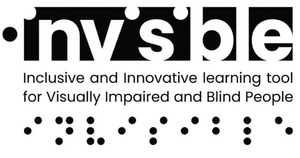In-VisIBLe - Inclusive and Innovative learning tool for Visually Impaired and Blind people
Scientific coordinators: Prof. Micaela ANTONUCCI (DA), Prof. Valeria FRISO (EDU)

Project Team: EDU: Sara MARCHESANI
DA: Matteo AGNOLETTO, Matteo CASSANI SIMONETTI, Federico FALLAVOLLITA, Danila LONGO, Leila SIGNORELLI, Beatrice TURILLAZZI, Davide GIAFFREDA, Stefano ASCARI, Marika MANGANO, Sofia NANNINI
Applicant: Alma Mater Studiorum – Università di Bologna – Dipartimento di Architettura (DA), Dipartimento di Scienze dell’Educazione “G. M. Bertin” (EDU)
Partners: Yedetepe University (TR), Akademia Humanistyczno-Ekonomiczna w Łodzi (PL), Information Technologies Institute of Centre for Research and Technology Hellas-CERTH (GR), Center for Education and Rehabilitation for the Blind-CERB (GR), Museo Omero (IT)
N.r Partners: 6
Partners’ Countries: IT, TR, GR, PL
UNIBO’s role: Applicant
Project Duration: 30 months
Start Date: 01/02/2022
End Date: 31/07/2024
Status: active
Grant Agreement: 2021-1-IT02-KA220-HED-000031139
Total Budget: 282.345,00 euros
Budget EDU: 19.976,00 euros
Project’s Topics: Disabilities, new learning and teaching methods and approaches, information and communication technologies (ICT)
Description: In-VisIBle project aims at addressing the pressing and growing need for inclusion of people with special needs, specifically by improving their access to Higher Education contents by using and implementing innovative tools for communication and fruition of cultural contents to be integrated in HE didactic modules. As suggested by its name, In-VisIBLe is focused on visual disability, which affects about 30 million people in the EU.
A real access to culture for visually impaired and blind people (“VIB”) is thus an important issue and, when it comes to the Higher Education offer, inclusion is especially challenging for VIB in those fields of knowledge that apparently exclude them without remedy, the so-called “visual” arts. The main focus of the In-VisIBLe project is the needs of the Higher Education systems, and especially the needs and requirements of the VIB students, but the project is also expected to be relevant for the needs of the broader community and of the cultural sector in general.
Contacts
-
Associate Professor
Dipartimento di Scienze Dell'Educazione "Giovanni Maria Bertin" - EDU
Via Filippo Re 6
Bologna (BO)
Tel: +39 051 20 9 1651